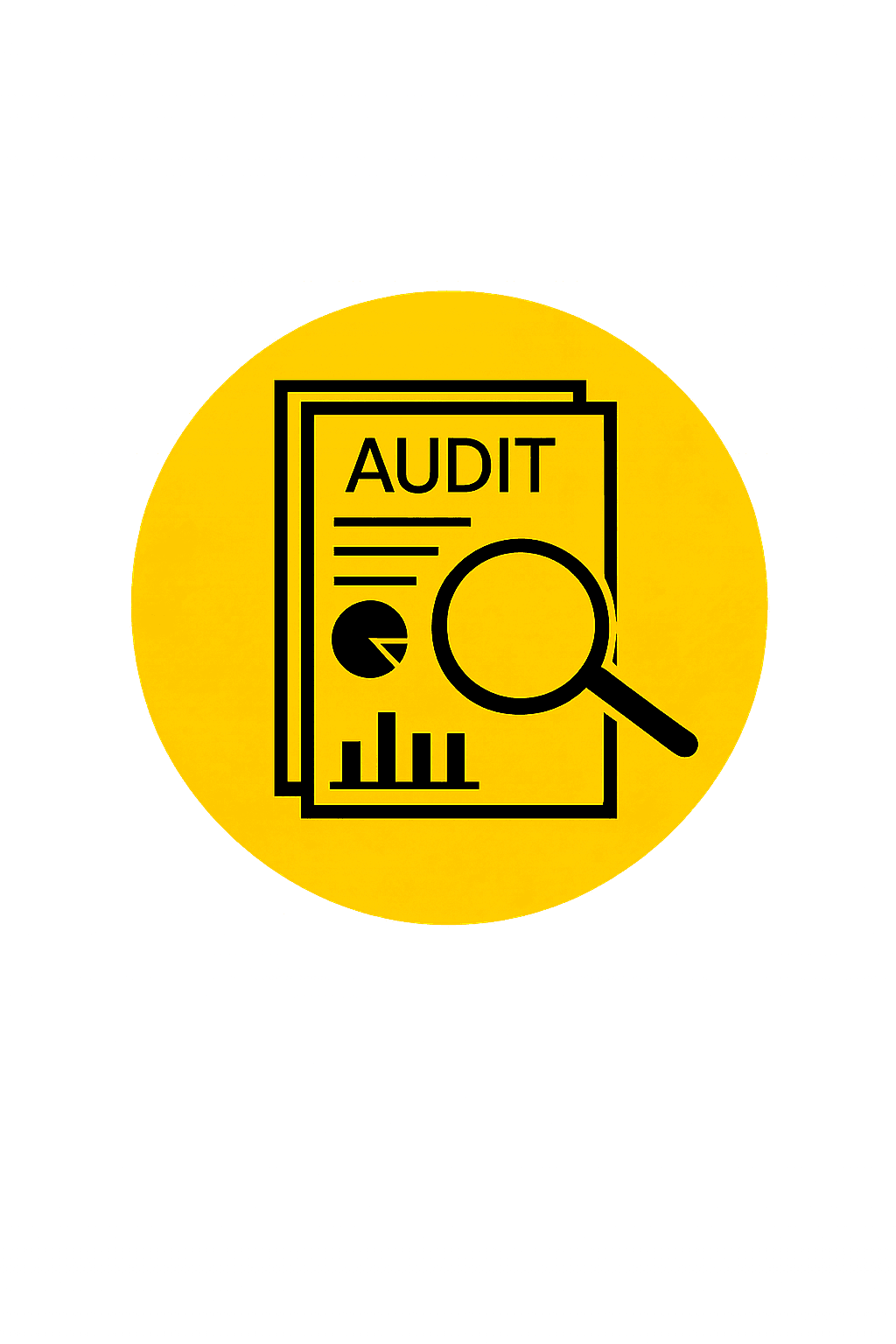Germany is a very attractive destination for individuals from all over the world looking to start a new business. For example, Germany is one of the preferred jurisdictions of the Chinese investors in Automotive and High Technology. China‘s Foreign Direct investment in Germany’s economy is impressive and keeps on growing. Germany’s Excellent academic standards, flourishing economy, and major advancements in engineering, plus the large number of small and medium-sized enterprises (SMEs), have been nurturing the country’s excellent reputation nearby international investors. There are, however, a couple of organizational issues that need to be dealt with before you can officially become your own boss.
Residence permit for self-employment or Entrepreneur in Germany
Before you can commence a business in the German region, you must ensure that you are entitled to stay there long-term. Under European Union law, citizens of the EU, EEA or Switzerland can live and work freely in Germany, including undertaking self-employed activity but nationals of other countries must apply for a residence permit for the purpose of self-employment before they can start a business in Germany. In order to qualify for this type of temporary residence permit, you will need to meet the subsequent requirements:
- There should be an economic interest in or a local demand for your product or service.
- It is foreseeable that your company will have a positive effect on the nation’s economy.
- You are able to fund the execution of your business concept with your own equity or through a loan commitment.
Assuming you are older than 45 years of age, this permit can only be issued if you can give proof of satisfactory old age pension provisions.
German definition of freelancers (Freiberufler) & tradespersons (Gewerbetreibenden)
German law makes a differentiation between a freelancer (Freiberufler) and a tradesperson (Gewerbetreibende). In Germany, a freelancer is someone with distinct qualifications who independently sell their services. Anyone else is considered a tradesperson.
Understanding this legal difference is significant for anyone considering starting their own business, as freelancers are not employed to register their business with the trade office or pay a trade tax.
Applying for a license (Erlaubnis)
Some trades and professions in Germany are conserved, and therefore you are expected to take some additional steps before you can register your business and begin trading.
Trades requiring a license in Germany
A few professions, such as insurance advisors, construction supervisors, and property developers, can only be practiced in Germany on a self-employed basis with a license (Erlaubnis).
This permit can be applied for at your local trade office (Gewerbeamt) by submitting a form. Although this can be done online, it is recommended to attend in person in case you have any queries. You will be required to provide some or all of the following:
- CRB check (polizeiliches Führungszeugnis)
- Proof of vocational qualifications
- Extract from the commercial register
- Certificate of non-objection (Unbedenklichkeitsbescheinigung) from the tax office and town hall
- SCHUFA credit report : SCHUFA credit check provides information about a customer’s ability to pay their invoices regularly. It is also called ‘creditworthiness’.
Skilled trades in Germany
Skilled trades (Handwerke) constitute another protected trade type in Germany. To practice a skilled trade in the nation, you must enter into the Register of Qualified Craftsmen or Handwerksrolle.
And to do this, you need to submit a form called the Application for Registration in the Register of Qualified Craftsmen (Antrag auf Eintragung in dieHandwerksrolle). Unfortunately, this accompanies a charge, but you do gain status as a skilled tradesperson.
There are 43 skilled trades (Handwerke) that can only be practiced with distinct qualifications and only those with the accurate vocational qualification can be entered into the register and authorized to practice these occupations. To practice other skilled trades you do not need specific qualifications, however, you still need to be entered into the register.
Recognition of non-German qualifications
Some professions, such as insurance advisers, security guards, and taxi drivers, are legislated in Germany. This implies that these professions may only be practiced by non-Germans who have equivalent foreign qualifications.
If you wish to operate a business in one of these areas, you must apply to a credible authority to have your foreign qualification officially recognized.
Selecting a legal form for your German business
Once you have taken the initial actions to guarantee the viability of your business venture in Germany, you need to select a legal form for your business.
Which legal forms you select will depend on whether you want to go solo or start your enterprise with others, who will lead the business, how much capital you have, and whether your personal liability should be limited.
Choosing the right structure is fundamental, as it will influence your business taxes and your personal debt liability in the future.
Entering the commercial register (Handelsregister)
Once you’ve specified your business structure and you’ve gotten every important license, the next step is to enter into the Commercial Register (Handelsregister). This is mandatory for all businesses in order to receive a commercial register number (Handelsregisternummer), which you will need to register your business at the local trade office and obtain a business license (Gewerbeschein)
The sole exemptions to this are freelancers and small businesses (Kleinunternehmen). Although, as a small business owner or a freelancer you can willingly enter your business in the commercial register, bear in mind that this comes with extra rights and obligations.
However, Larger businesses are obliged to enter the German commercial register. The application to be filled is electronically done and the cost of registration varies depending on the company’s legal form.
Registering at the German trade office (Gewerbeamt)
Once you have your Handelsregisternummer and any licenses or permits required, you can pay a visit to your local trade office (Gewerbeamt) to register your business.
To register your business, you will need the following:
- Valid ID, such as a passport
- Registration certificate
- Visa or residence permit enabling you to carry out the self-employed activity
- Proof of your qualifications and any permits or licenses, as required
Registering at the trade office usually costs between €10 – €40, could be higher but no more than €70.
Once your business is registered, information about your registration will be forwarded to the tax office (Finanzamt), the local Employers’ Liability Insurance Association (Berufsgenossenschaft), and, depending on the type of business you register, maybe the District Court (Amtsgericht) also.
Registering with the German tax office
After you have registered with the trade office, the tax office will reach out to you to register your business for tax purposes. You’ll be asked to fill out a form called “Fragenbogen zur steuerlichen Erfassung”. Alternatively, you can speed up the process by downloading a form to fill out or submitting it via ELSTER. The form is only available in German, so, if you are uncertain about anything, it is advisable to consult with a tax advisor rather than risk a delay by entering information wrongly. You will be required to submit the following details:
- Tax ID
- Description of your business activity
- Details of your German bank accounts
- Estimated profit and expenses
- Estimated revenue
- Registrations with the Chamber of Industry and Commerce
- Registration in Commercial Register
Once you have completed the aforementioned form and sent it back, you will receive your tax number and your VAT number. You will require both of these numbers before you can start sending invoices and charging VAT.
Business tax in Germany
Based on the assessments you provide in your form, the tax office will send you a schedule for tax payments. Businesses and tradespeople in Germany are likely to pay several distinct kinds of business taxes, banking on their annual turnover and their legal form.
German business administration
In Germany, businesses are legally required to keep financial and administrative records for a decade. Assuming the authorities suspect you have been paying tax incorrectly, you may be asked for records reaching back beyond 10 years. This includes Invoices, Bank statements, Contracts, Agreements, and Expenses.
Double-entry bookkeeping
While single-person businesses and partnerships are generally free to select how to manage their accounts, corporations in Germany are required by law to use double-entry bookkeeping.
Bank accounts for businesses
To keep your business assets and liabilities separate from your personal ones, you are required to open a business bank account. Having a separate business account likewise makes business administration much smoother and will save you a ton of time.
Personal insurance and pensions for self-employed workers in Germany
Becoming self-employed in Germany implies that social security contributions are not naturally deducted from your salary, but you will need to take some steps to make sure you are covered by all the required types of insurance.
Self-employed workers & Pensions
As a self-employed worker, you can keep making voluntary contributions to the German statutory pension scheme. Certain groups of self-employed persons Such as workers in Healthcare, Architecture & Engineering, Lawyers, accountants, and notaries are legally obliged to contribute but if you do not fit into one of these categories, you can still make willing contributions to the state pension plan by notifying your pension fund of your decision to become willingly insured.
Self-employed workers’ health insurance
Self-employed workers are not obligated to contribute to statutory health insurance (gesetzliche Krankenversicherung). However, having health insurance is mandatory in Germany, so you need to make sure you are covered by a plan. You can voluntarily contribute to a statutory health insurance scheme, which will automatically entitle you to sickness benefits and long-term care, as well as providing cover for your dependent family members.
- To guard against unemployment in the future, you also have the choice to make voluntary contributions to unemployment insurance.
- You can decide to take out voluntary accident insurance for yourself, and if you have any employees, you will be obliged to make commitments to the scheme on their behalf.
In addition to personal insurance, self-employed workers always choose to take out professional insurance to guard against risks that might damage their business. An insurance advisor can help you determine which types of insurance might be essential for your business.
All these processes might looks a little difficult but we assure you, with your Damalion experts just a click away, it’s a pretty straightforward process. You may need to use a Luxembourg company to optimize your investment and business in Germany.
To open your Germany company, please contact your Damalion expert now.
How to Start Up Your Own Business in Germany
Germany combines a large consumer market, strong supplier networks, and access to the EU single market. Below we answer the questions founders, family offices, and international entrepreneurs ask most often—legal forms, capital, registrations, banking, tax/VAT, payroll, and the path to first revenue.
Damalion facilitates the right introductions to notaries, banks, tax advisors, payroll providers, and registered office partners. We coordinate everything end-to-end—name checks, documents, notarisation, filings, bank onboarding, VAT/EORI, and first payroll—so you can focus on the business.
Last updated:Which German legal form fits your plan?
Choose early to keep governance, capital, and compliance aligned as you approach launch.
| Legal form | Best for | Notes |
|---|---|---|
| GmbH | SMEs and scale-ups seeking limited liability | Share capital typically €25,000 (cash or in-kind). Notarial deed and trade register (Handelsregister) required. |
| UG (haftungsbeschränkt) | Lean entry with very low starting capital | Capital can start from €1; profits partially retained until converted to a GmbH. |
| GmbH & Co. KG | Operational flexibility with partnership features | Hybrid: GmbH as general partner; useful for profit allocation and investor participation. |
Considering holding structures above the German OpCo? See Luxembourg SOPARFI for cross-border chains and financing.
What documents should you prepare?
- Valid passports/IDs of shareholders and managing directors; proof of address and basic KYC.
- Draft articles (Gesellschaftsvertrag/Satzung), shareholder list, and managing director appointment.
- Company name check and business purpose (Gegenstand) aligned with activity and permits.
- Capital plan (cash/in-kind), UBO/ownership chart; bank reference if requested.
- Notarial deed of incorporation, trade register filings, business registration (Gewerbeanmeldung).
- Tax registration (Finanzamt), VAT (USt-IdNr), and—for trade—EORI if importing/exporting.
- Registered office, payroll setup (Sozialversicherung), basic data-protection notices.
Step-by-step to first revenue
- Name and scope. Reserve a compliant company name and define activity/permits.
- Draft and notarise. Finalise articles; attend notary (in person or by POA where acceptable).
- Open escrow and pay in capital. Evidence of payment may be requested by the notary/registry.
- Register. File with Handelsregister; complete Gewerbeanmeldung and UBO notification.
- Tax & VAT. Register with Finanzamt, obtain USt-IdNr; set VAT method and invoicing rules.
- Operations. Convert the formation account to an operating account; onboard payroll; issue first invoices.
Costs and timeline – what to expect
- Notary and court fees for incorporation and registry notices.
- Share capital: GmbH typically €25,000 (UG can start lower); partial payment possible subject to rules.
- Professional fees for tax, payroll, and legal drafting.
- Indicative timing: once the file is complete, incorporation and registrations can be completed within weeks; banking and VAT may add time depending on KYC and activity.
This overview is for general information only and is not legal or tax advice. Obtain tailored advice before commitments.
Tax and payroll basics
- Corporate income tax (KSt) 15% plus solidarity surcharge (≈5.5% on KSt).
- Trade tax (Gewerbesteuer) varies by municipality; combined effective corporate burden commonly ~23–33% depending on location.
- VAT standard rate 19% (reduced 7%); cross-border rules apply for intra-EU trade and exports.
- Payroll: register as employer, withhold wage tax and social security; set up timely filings.
Banking, VAT, and compliance—how we help
Damalion coordinates bank onboarding (escrow and operating accounts), aligns KYC narratives (source of funds/wealth), and ensures documents match bank expectations. We synchronise tax/VAT registration with your invoicing timeline, set up payroll calendars, and keep a single action-item tracker across notary, registry, bank, tax office, and payroll. Practical, compliance-minded project management—so your kick-off is smooth.
Related reading
FAQ — legal and tax
Can non-residents incorporate a German company?
What are the minimum capital rules for a GmbH and a UG?
Is a locally resident managing director (Geschäftsführer) mandatory?
What must be notarised?
What is the difference between Handelsregister registration and Gewerbeanmeldung?
Which activities require prior licences or notifications?
What are UBO (Transparenzregister) obligations?
How do Steuernummer and VAT ID (USt-IdNr) differ?
What VAT rates and filing cycles apply?
What is the corporate tax burden?
Are dividends subject to withholding tax?
How are intercompany prices reviewed?
When does a permanent establishment (PE) arise?
What are the employer registration and payroll obligations?
Are statutory audits required?














































